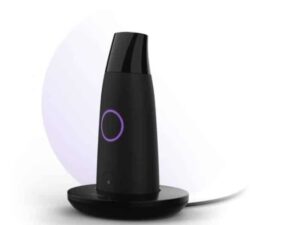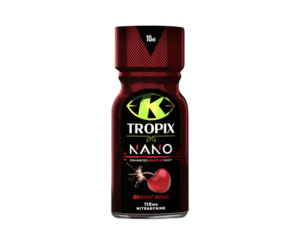L-Glutamine: The Essential Amino Acid for Optimal Health
Biohack Your Brainpower
Introduction
L-Glutamine, a conditionally essential amino acid, plays a vital role in maintaining optimal health. As the most abundant amino acid in the body, L-Glutamine is crucial for protein synthesis, immune function, and intestinal health. In this comprehensive guide, we will explore the benefits, dosage, and potential side effects of L-Glutamine, as well as its role in cognitive enhancement and overall well-being.
How L-Glutamine Works in the Body
L-Glutamine is a building block for proteins and plays a significant role in various bodily functions:
- Protein synthesis: L-Glutamine is essential for the production of proteins, which are necessary for muscle growth, repair, and maintenance.
- Immune system support: L-Glutamine serves as a fuel source for immune cells, helping to maintain a strong and healthy immune system.
- Intestinal health: L-Glutamine helps maintain the integrity of the intestinal lining, preventing leaky gut syndrome and supporting overall digestive health.
Learn More: How Your Gut Health Affects Your Mental Health
Benefits of L-Glutamine Supplementation
Supplementing with L-Glutamine can offer numerous benefits for both physical and mental health:
- Muscle recovery and growth: L-Glutamine helps repair and rebuild muscle tissue after intense exercise, promoting faster recovery and muscle growth.
- Improved immune function: By supporting immune cells, L-Glutamine can help boost the body’s natural defenses against illness and infection.
- Better gut health and digestion: L-Glutamine helps maintain the integrity of the intestinal lining, reducing inflammation and supporting healthy digestion.
- Potential nootropic effects: L-Glutamine may have cognitive-enhancing properties, improving focus, memory, and overall brain function.
Learn More: What are Nootropics? The Ultimate Beginners Guide To Cognitive Enhancers
L-Glutamine Deficiency
While the body can produce L-Glutamine, certain factors can lead to a deficiency, including:
- Intense exercise or physical stress
- Injury or surgery
- Chronic illness
- Poor diet or malnutrition
Symptoms of L-Glutamine deficiency may include:
- Muscle wasting
- Fatigue
- Impaired immune function
- Digestive issues
L-Glutamine Dosage and Administration
The recommended daily dosage of L-Glutamine varies depending on individual needs and health status. Generally, a dosage of 5-15 grams per day, divided into smaller doses, is considered safe and effective. Factors such as age, body weight, and health conditions may influence the optimal dosage.
L-Glutamine supplements are available in various forms, including:
- Powder
- Capsules
- Tablets
It is best to take L-Glutamine on an empty stomach, either 30 minutes before or 2 hours after a meal, for optimal absorption.
Potential Side Effects and Precautions
While L-Glutamine is generally considered safe, some individuals may experience side effects, such as:
- Digestive discomfort (bloating, diarrhea, or constipation)
- Headache
- Nausea
- Skin rash
Pregnant and breastfeeding women should consult with their healthcare provider before taking L-Glutamine supplements. Individuals with certain health conditions, such as liver or kidney disease, should also seek medical advice before supplementing with L-Glutamine.
L-Glutamine may interact with certain medications, including:
- Anticonvulsants
- Chemotherapy drugs
- Lactulose
L-Glutamine and Mental Health
L-Glutamine plays a crucial role in brain function and mental health. As a precursor to the neurotransmitter glutamate, L-Glutamine helps regulate mood, cognitive function, and memory.
Studies have suggested that L-Glutamine supplementation may be beneficial for individuals struggling with depression, anxiety, and addiction. By supporting neurotransmitter production and reducing oxidative stress in the brain, L-Glutamine may help improve overall mental well-being.
Learn More: 13 Best Nootropics For Addiction Recovery
L-Glutamine and Gut Health
L-Glutamine is essential for maintaining a healthy gut lining, which is crucial for overall digestive health. By supporting the integrity of the intestinal barrier, L-Glutamine helps prevent leaky gut syndrome and reduces inflammation in the digestive tract.
Supplementing with L-Glutamine may be particularly beneficial for individuals with digestive disorders such as inflammatory bowel disease (IBD) or irritable bowel syndrome (IBS). Studies have shown that L-Glutamine can help reduce intestinal permeability and alleviate symptoms associated with these conditions.
L-Glutamine and Athletic Performance
Athletes and fitness enthusiasts often turn to L-Glutamine supplements to support muscle recovery and growth. By reducing muscle breakdown and promoting protein synthesis, L-Glutamine can help minimize post-exercise muscle soreness and improve overall athletic performance.
L-Glutamine may also help improve endurance by reducing fatigue and supporting energy production during prolonged exercise. Combining L-Glutamine with other performance-enhancing supplements, such as creatine and branched-chain amino acids (BCAAs), may provide additional benefits for athletes and bodybuilders.
FAQ about L-Glutamine
Is L-Glutamine safe for long-term use?
L-Glutamine is generally considered safe for long-term use when taken at recommended dosages. However, it is always best to consult with a healthcare professional before starting any long-term supplement regimen.
Can L-Glutamine help with weight loss?
While L-Glutamine is not a direct weight loss supplement, it may support weight loss efforts by promoting muscle recovery and reducing muscle breakdown. Maintaining lean muscle mass can help boost metabolism and support overall fat loss.
Is L-Glutamine effective for treating IBS?
Some studies have shown that L-Glutamine supplementation may help alleviate symptoms of IBS by reducing intestinal permeability and supporting the health of the gut lining. However, more research is needed to fully understand the efficacy of L-Glutamine in treating IBS.
Can L-Glutamine boost the immune system?
Yes, L-Glutamine plays a vital role in supporting immune function. As a fuel source for immune cells, L-Glutamine helps maintain a strong and healthy immune system, making it an essential nutrient for overall health and well-being.
What are the best food sources of L-Glutamine?
Some of the best food sources of L-Glutamine include:
- Beef
- Chicken
- Fish
- Eggs
- Dairy products
- Beans
- Spinach
- Parsley
Where to Buy L-Glutamine
L-Glutamine supplements are widely available from various sources, including:
- Online retailers (Amazon, iHerb, Vitacost)
- Health food stores (Whole Foods, Sprouts, local health food stores)
- Supplement stores (GNC, The Vitamin Shoppe)
- Pharmacies (CVS, Walgreens, Rite Aid)
When choosing an L-Glutamine supplement, consider the following factors:
- Quality and purity of the product
- Reputation of the brand
- Third-party testing and certifications (NSF, USP, GMP)
- Form of the supplement (powder, capsules, tablets)
- Price and value for money
L-Glutamine Discussions on Reddit
L-Glutamine for Gut Health and IBS
I can’t speak for any of the other benefits, but I’ll note #3: Digestive Health. In my research to improve my mom’s GI health (cholecystectomy, celiac disease, chronic diarrhea, poor nutrition uptake, etc.), L-Glutamine kept popping up with a fair amount of research supporting it and it being advised by GI specialists.
u/Independent-Bug-9352 in discussion ‘Benefits Of L-Glutamine?’
L-Glutamine for Sugar Cravings and Alcohol Addiction
I’ve been using glutamine for several years. Initially, I was using it to curb sugar cravings, but after a terrible experience with food poisoning I also value using it for gut healing/health.
u/Johoski in discussion ‘L-glutamine and Cravings’
Potential Side Effects and Precautions with L-Glutamine
I have tried glutamine and it was utter trash. It exacerbated my underlying mystery disease. Irritability, brain fog, fatigue, insomnia from what I can remember. You can argue whether it was due to glutamate, ammonia, (lack of) lipopolysaccharide, or something else. One thing is for sure, I will never touch that shit again. Strange though because I find protein and protein powders completely safe.
u/FrigoCoder in discussion ‘Glutamine. Who tried it? Write your experience’
Conclusion
L-Glutamine is a versatile and essential amino acid that plays a crucial role in supporting









